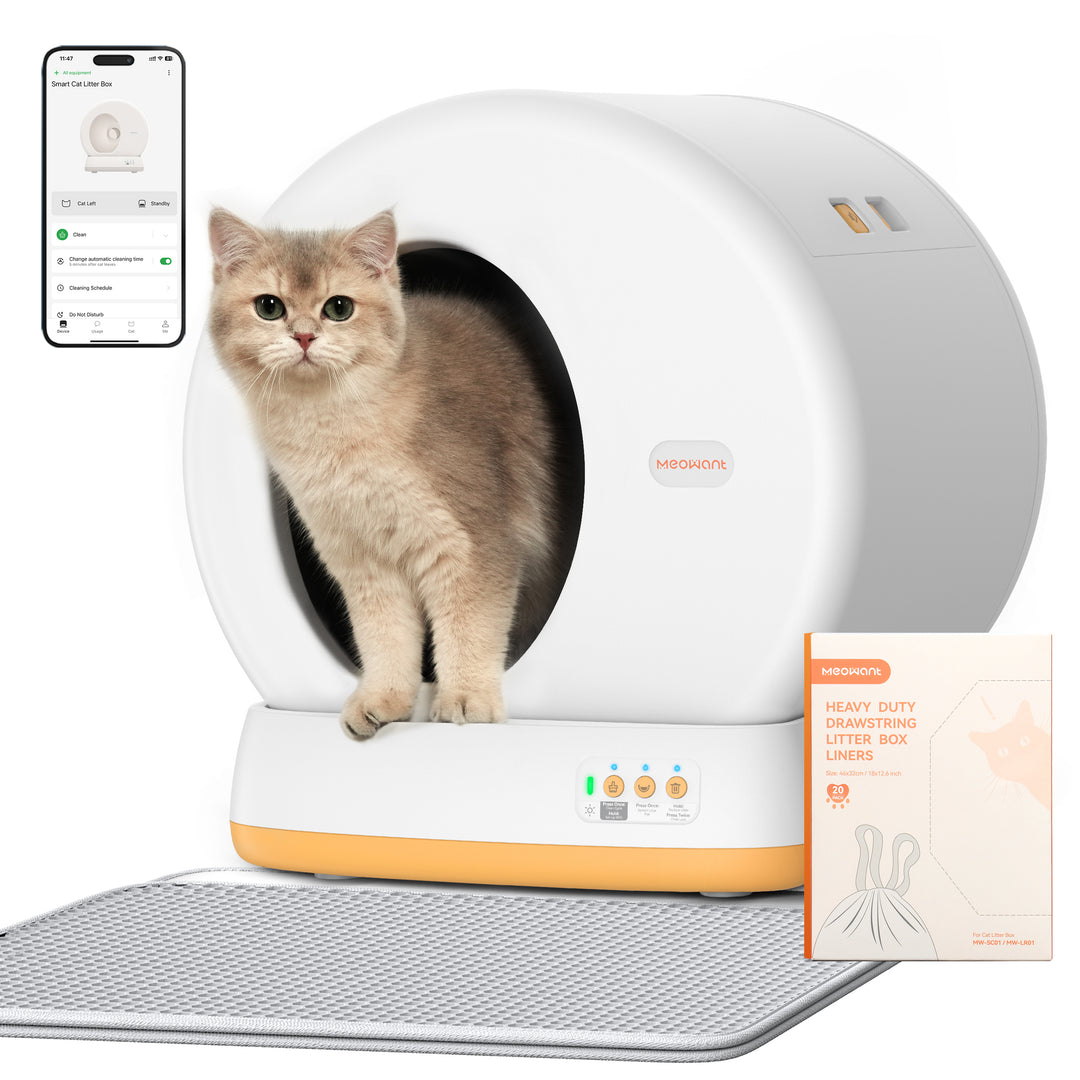Unlock the Secret to Your Cat's Happiness: Discover the Ultimate Litter Box Guide!
Choosing the right litter box is crucial for your cat's happiness and well-being. Just like humans, cats have preferences, and a suitable litter box can significantly affect their behavior and comfort. With a plethora of options available, from traditional boxes to high-tech self-cleaning models, it can be overwhelming for cat owners to determine which type is best for their feline friends. This guide aims to simplify the decision-making process by providing insights into the various types of litter boxes, their benefits and drawbacks, and tips for choosing the right one that caters to your cat's specific needs.

Understanding the Basics of Cat Litter Boxes
A litter box serves as a designated area for your cat to relieve itself, playing a vital role in their hygiene and comfort. Cats are instinctively clean animals, and providing them with an appropriate litter box helps satisfy this natural behavior. A well-maintained litter box not only prevents unpleasant odors and messes around your home but also ensures that your cat feels secure and comfortable while using it. When a litter box is chosen and maintained properly, it promotes good litter habits, reduces the likelihood of accidents, and ultimately contributes to your cat’s overall happiness and health.
Types of Cat Litter Boxes
When it comes to litter boxes, there are several types to consider, each designed to meet different needs and preferences. Understanding the various options available can help you make an informed choice that aligns with your lifestyle and your cat's behavior.
Traditional Litter Boxes
Traditional litter boxes are the most common type. They usually consist of an open, rectangular container that holds litter. One of the main advantages of traditional boxes is their simplicity; they are easy to clean and refill. However, some cats may kick litter out of the box or be deterred by the lack of privacy. Additionally, these boxes may not contain odors as effectively as covered options.
Covered Litter Boxes
Covered litter boxes offer a lid or cover that provides privacy for your cat while they do their business. The enclosed design can help contain odors and prevent litter from being kicked out. However, some cats may feel claustrophobic in a covered box, which could lead to avoidance. It's essential to observe your cat's behavior to see if they prefer an open or covered option.
Self-Cleaning Litter Boxes
For busy cat owners, self-cleaning litter boxes can be a game-changer. These innovative devices automatically rake away waste and clump litter, reducing the frequency of manual cleaning. While they can save time and effort, they may also come with a higher price tag and require regular maintenance to ensure proper functioning. It’s worth considering if you have multiple cats or a busy schedule.
Disposable Litter Boxes
Disposable litter boxes are designed for convenience and sustainability. Made from recyclable materials, these boxes can be thrown away after use, minimizing the need for cleaning. They are especially useful for traveling or for cats that are transitioning to a new home. However, some cat owners may find them less durable compared to traditional options, which may impact their long-term viability.
Choosing the Right Litter Box for Your Cat
Selecting the best litter box for your cat depends on several factors, including their size, age, and behavior. For instance, kittens may require a shallower box for easy access, while larger breeds may benefit from bigger boxes with higher sides to accommodate their stature. Additionally, consider the location of the litter box; a quiet, easily accessible spot can encourage your cat to use it regularly. Pay attention to your cat’s preferences, as some may prefer open spaces while others might seek privacy. Involving your cat in the selection process can lead to a happier, more engaged litter box experience.
Maintaining Your Cat's Litter Box
Proper maintenance of your cat's litter box is essential for hygiene and your cat's well-being. Regularly scooping the litter—at least once a day—is crucial to prevent odors and bacteria buildup. Depending on the type of litter you use, a complete change of litter and cleaning of the box should occur every one to two weeks. Use mild, unscented cleaners to avoid irritating your cat's sensitive nose. Additionally, keeping the litter box in a consistent location can help your cat feel secure and comfortable, encouraging them to use it consistently.
Ensuring Your Cat's Happiness with the Right Litter Box
In summary, selecting the right litter box is a critical aspect of ensuring your cat's happiness and well-being. By understanding the different types of litter boxes available and considering your cat's unique needs and preferences, you can create a suitable environment for them. Regular maintenance is equally important, as it keeps the litter box hygienic and odor-free. With the right approach, you can enhance your cat's quality of life, making them feel safe and loved in their home.





